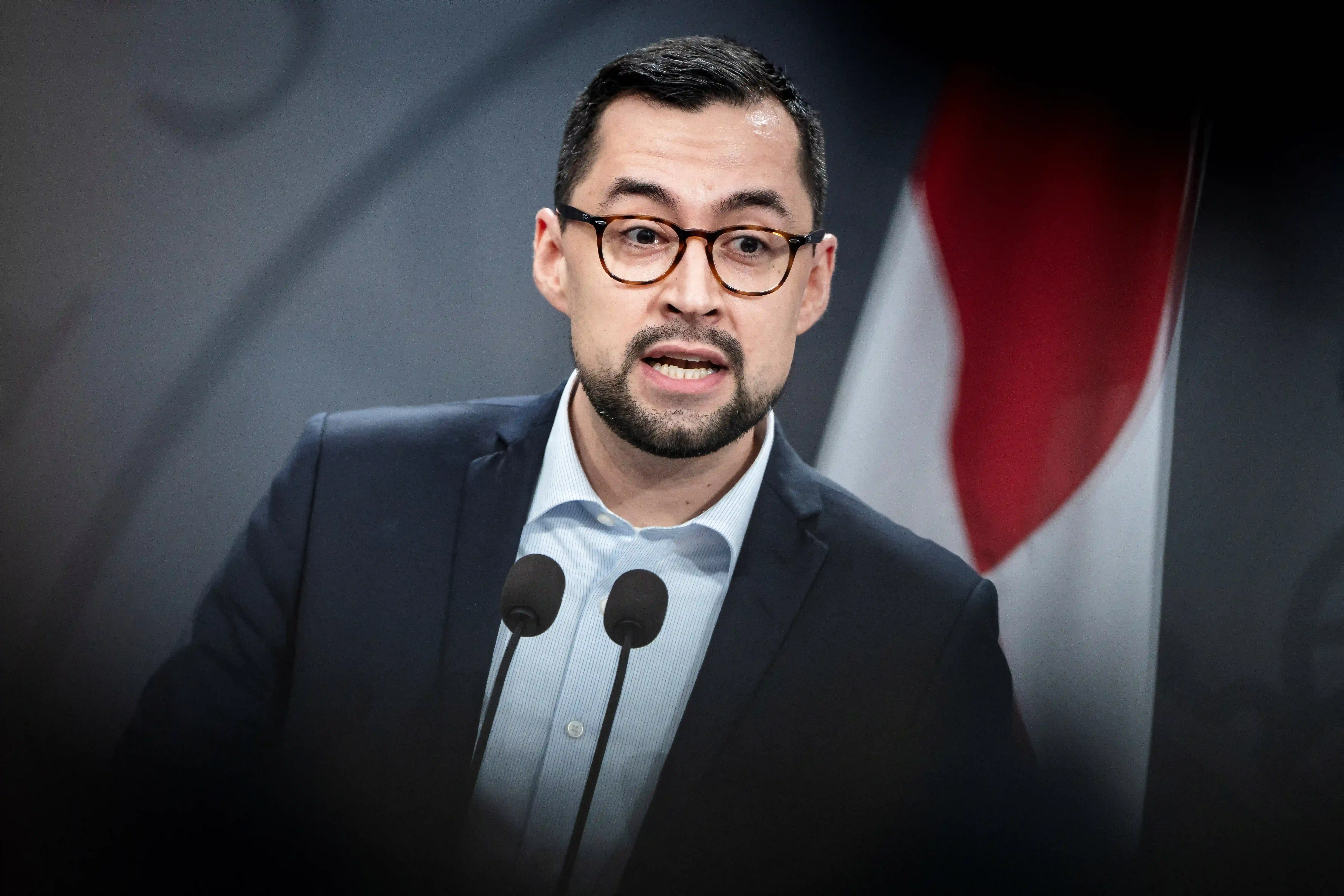Greenlanders will go to the polls on Tuesday as the Arctic island sits in the international spotlight and in the sights of Donald Trump.
Soon after he returned to office in January, the US president showed renewed interest in acquiring Denmark's resource-rich and strategically placed territory that has governed itself since 2009.
The key issues in the election are the island’s economy — which relies heavily on fishing and annual grants from Copenhagen — as well as its relations with Denmark and the US.
Pro-independence voices have also been rising in Greenlandic politics, though some figures have voiced readiness to play ball with Washington.
General election
On the world’s largest island, voters will cast their ballots to elect lawmakers for seats in the 31-member parliament, the Inatsisartut.
Sixteen seats are needed for a majority in the chamber, where members are elected for four-year periods by proportional representation, with six major parties in the race.
Greenland is currently ruled by the coalition government of Prime Minister Mute Bourup Egede’s left-wing Inuit Ataqatigiit and Erik Jensen’s social democratic Siumut party, each controlling 12 and 10 seats, respectively.
The opposition consists of Pele Broberg’s party Naleraq with four seats, Jens Frederik Nielsen’s Democrats with three, and Aqqalu Jerimiassen’s Atassut’s two.
Along with these five, the Qulleq party, formed in 2023 by former members of the Siumut and Naleraq parties, also gained ballot access a month before the election.
The party’s main focus is rapid independence from Denmark and the beginning of the extraction of oil from Greenland.
A January poll by research agency Verian suggests that Premier Egede’s Inuit Ataqatigiit party could secure about 31 percent, and Siumut about 9 percent of votes.

Why does Trump want Greenland?
Trump first expressed interest in purchasing Greenland from Denmark during his first term in 2019. In his renewed calls over the past several weeks, he has said acquiring the Arctic territory was an “absolute necessity” for the US.
Coveted for its strategic value in security and trade, Greenland straddles the Arctic Circle, as well as strategic sea lanes in the North Atlantic between the US and Europe.
It also possesses untapped oil and gas resources and a variety of rare earth elements, such as yttrium, scandium, neodymium and dysprosium, necessary for the production of many technological goods.
The island, whose capital Nuuk is closer to Washington, DC than Copenhagen, also hosts a US military base — Pituffik Space Base, formerly Thule Air Base — on its northwestern coast under a defence agreement between the US and Denmark.
‘Not for sale’
Neither Denmark nor Greenland are keen to greenlight US ownership of the island, as repeatedly expressed in response to Trump’s overtures.
Hours after Trump declared in his Congress address last week that he intends to gain control of the island “one way or the other,” Greenland’s Prime Minister Mute Bourup Egede responded firmly: “Greenland is ours.”
“Kalaallit Nunaat is ours,” he wrote on Facebook, using his country’s Greenlandic name.
“We don’t want to be Americans, nor Danes; We are Kalaallit. The Americans and their leader must understand that. We are not for sale and cannot simply be taken. Our future will be decided by us in Greenland.”
On Trump’s comments, Denmark’s Foreign Minister Lars Lokke Rasmussen said he doubts Greenlanders want to separate from Denmark only to become “an integrated part of America.”
Possible path to independence
Greenland gained self-rule with its own parliament in 1979, though it remains a territory of Denmark.
Opinion polls indicate that while a majority of Greenlanders support independence, there is division over the timing and its potential impact on living standards.
Experts note that Greenlanders, who benefit from universal healthcare and free education, would likely want to ensure that moving forward with an independence referendum does not make them economically worse off.
About 28 percent of respondents say they would vote against independence, while 45 percent indicated they would not support it if it led to a decline in their standard of living. This underscores the uncertainty surrounding Greenland’s path to full sovereignty.
Meanwhile, Greenland’s pro-independence Prime Minister Mute Bourup Egede stated earlier this year: “Work has already begun on creating the framework for Greenland as an independent state.”
An independence referendum is expected to take place in April this year, following the upcoming legislative elections.
What is Greenland’s status now?
Despite being the world’s largest island, with 80 percent of its landmass permanently covered in ice, much of Greenland remains uninhabitable.
It has a small population of approximately 56,000 people, most of whom are Indigenous Inuit. Greenlandic is the official language.
Formerly a Danish colony, Greenland became self-rule in 1979 and remains a territory of Denmark, which retains control over its foreign and defence policy. In addition to its own local government, Greenland has two representatives in the Danish Parliament, the Folketing.
In 2009, Greenland approved the Self-Government Act in a referendum, allowing it to take on additional areas of governance. However, foreign, defence, and security policies remain under Danish control.
The enactment of the Self-Rule Act paved the way for potential full independence from Denmark, though the timeline for such a transition remains uncertain.



















